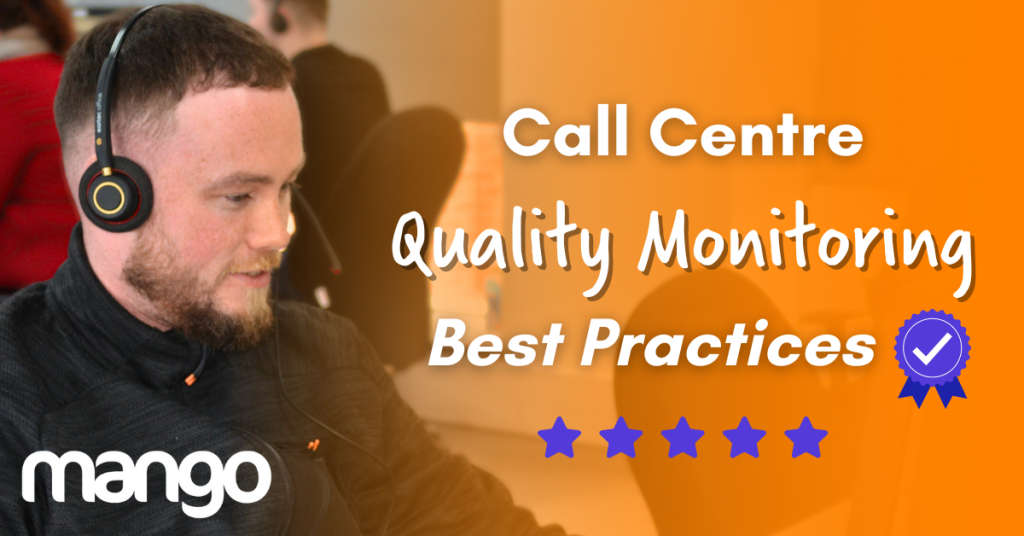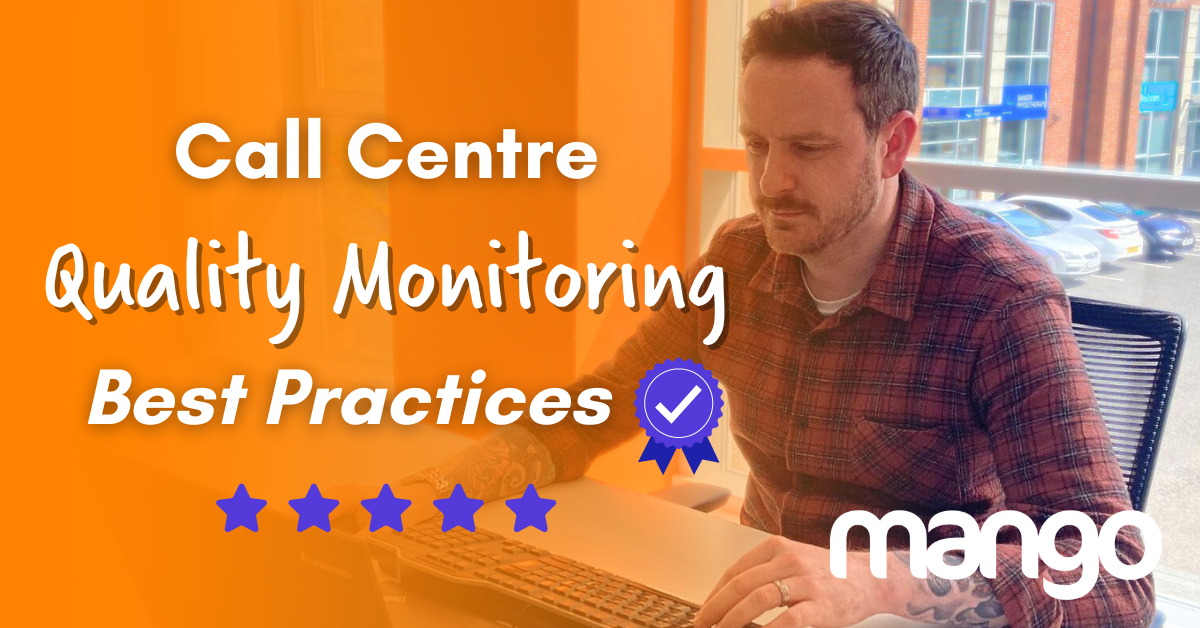Call Centre Quality Monitoring Best Practices

In a Call Centre, ensuring the highest standard of service is paramount.
Investing in quality creates a full-circle effect; not only does it positively impact on caller experiences, but also employee morale and client satisfaction levels.
As such, quality monitoring is an absolute must in helping all departments maintain excellence and harmony.
As a leading Call Centre, it’s safe to say we have a trick or two up our sleeve when it comes to overseeing and optimising performance…
In this blog, we uncover our top four best practices for monitoring quality and promoting development on an ongoing basis.
#1 Record All Calls
These days, when contacting any business via telephone, it is very common to hear the phrase “this call is being recorded for training and quality purposes”.
This is because recording calls is vital in the quality assurance process; allowing companies to evaluate according to business needs, mainly to ensure they are delivering the best service possible.
At Mango, we record 100% of calls to make sure our quality is in tip-top shape. By doing this, it means we can:
- Identify training needs for more effective coaching
- Spot new customer needs to inform clients and optimise systems/scripting
- Ensure accuracy and compliance with the law
- Build confidence in agents by letting them hear their progress over time
- Offer secure access to our clients so they can listen to the calls we make on their behalf, allowing a transparent and collaborative relationship
#2 Make Call Listening Daily
Using our own PCI-compliant, purpose-built inhouse call recording system, M-Player, we are able to capture and assess calls regularly.
Call listening happens daily here at Mango, completed by management across the Call Centre, Client Services and Training teams, so continuous improvement is always at the forefront.
While it may sound like a lot – we do this day-to-day so agents are also receiving the best level of attention and care. With daily monitoring, we can spot knowledge gaps, carry out tailored coaching, and ask agents for feedback so they can feel heard and ask questions if they need to.
Our clients love this proactive approach, too! With the Call Centre being a ‘live’ environment, it means we can quickly resolve any issues that arise and move forward with greater clarity and confidence.

#3 Use Agent Self-Scoring
Another effective quality monitoring method is getting agents actively involved in the process. This could be listening to and scoring their own calls or other agents’ calls as a benchmarking exercise.
We truly see the benefit of facilitating agent-led coaching sessions here at Mango, some of which include:
- Encouraging ownership and promoting reflective practice
- Developing self-directed learning
- Goal setting and instilling drive to achieve
- Increasing motivation e.g. appraisals, staff spotlights, prizes
- Helping agents identify their strengths, weaknesses, learning needs and aims for improvement
- Learning new, transferrable skills
By collaborating with agents, we have found that this not only increases commitment to their roles, but it also helps them become more engaged with clients and our company culture.
#4 Schedule Ongoing Training
Quality can only be guaranteed with continued emphasis on learning and development.
Ongoing training provides employees with the ability to do superb work today, tomorrow, and many years down the line! It’s important because it reduces skills gaps, provides structure for development plans, and boosts staff productivity and morale.
While staff may see the work they do as second nature over time, there are certain topics that require regular review to ensure quality through compliance and care (e.g. when handling calls from people in vulnerable circumstances).
With that in mind, we make it a priority to regularly train staff to continually:
- Strengthen their knowledge and understanding
- Comply with the law
- Provide the greatest level of customer care
- Align with our clients’ goals
Through recording and listening to calls daily and carrying out regular coaching, this also helps create ongoing training plans to strengthen our quality output.

Making Quality Monitoring a Priority
The secret to making quality monitoring a priority is to introduce the above four practices into a daily routine. In our own experience, doing this has helped us:
- Increases transparency
- Maintain a low attrition rate
- Improve customer experiences and feedback
- Strengthen relationships between clients
As you can imagine, there’s plenty more we could say on the subject of quality! For more, check out our other blogs: 4 Call Centre Management Best Practices and Tracking Call Quality: Our Top Hints and Hacks
09.07.24
